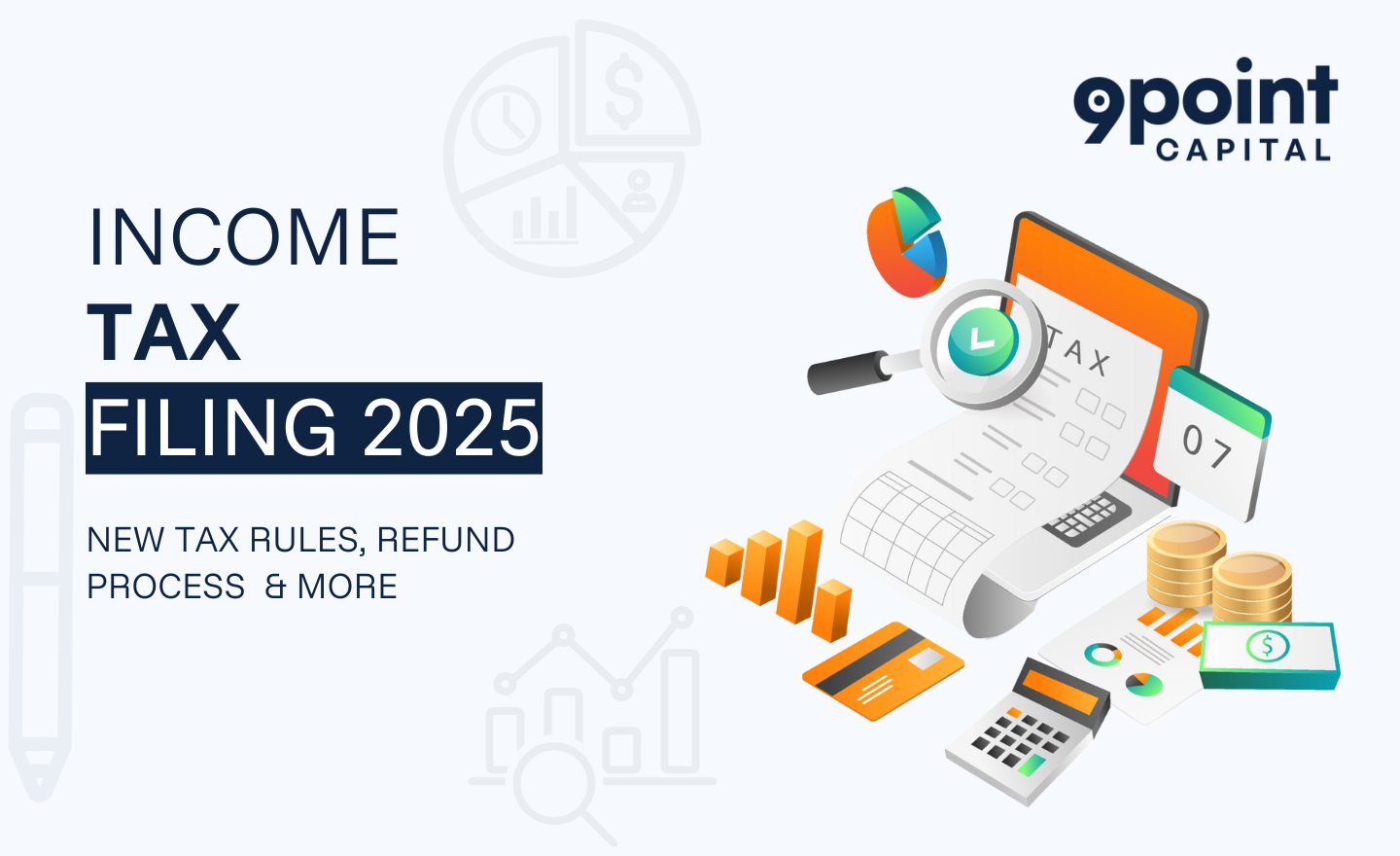The good news! Not all Bitcoin investments are taxed the same way.
- Bitcoin ETFs are structured like stocks regarding tax reporting and standard capital gains treatment.
- Direct Bitcoin ownership gives full control but comes with tax complexities. Every trade, sale or even purchase with Bitcoin is a taxable event.
Understanding the differences of income tax crypto laws in India is essential for high-net-worth investors looking to optimise and diversify their portfolio. Let’s break it down.
Income Tax on Bitcoin ETFs
Bitcoin ETFs provide a regulated and convenient way to invest in Bitcoin without the complexities of self-custody. However, taxation varies based on jurisdiction and fund structure.
1. Capital Gains Tax on Bitcoin ETFs
Bitcoin ETFs are typically treated as securities and taxed under capital gains provisions:
- Short-term Capital Gains: If held for less than 24 months, gains are taxed as ordinary income slab rate.
- Long-term Capital Gains: If held for over 24 months and above, investors may benefit from lower capital gains tax rates at 12.5% (e.g., 0%, 15% or 20% in the U.S.).
- Tax-Efficient Accounts: In some countries, investors can hold Bitcoin ETFs in tax-advantaged accounts (e.g., IRAs in the U.S.) to defer or eliminate taxes.
2. Tax Reporting Simplicity
Capital gains are reported in your Income Tax Return using Form ITR-2 or ITR-3, with additional disclosures required in the Schedule Foreign Assets (FA) section of the ITR for compliance.
By investing through a trusted platform like 9Point Capital, investors can ensure seamless reporting and compliance while navigating Bitcoin tax filing guide complexities.
Income Tax on Direct Bitcoin Ownership
Owning Bitcoin directly introduces unique tax considerations, as the Indian government classifies crypto assets including Bitcoin as Virtual Digital Assets (‘VDA’).
1. Cryptocurrency Capital Gains Transactions
Every trade, sale or spend of Bitcoin is taxed at flat 30% as per Section 115BBH (India’s 30% tax on Bitcoin and digital asset gains). Further, no off-set of losses is possible. There is 1% TDS deducted on every sale of Bitcoin.
- Selling for Fiat: Gains are taxed at flat 30% plus additional surcharge and 4% cess, as applicable.
- Crypto-to-Crypto Trades: Exchanging Bitcoin for another digital asset triggers a taxable event, requiring cost basis calculations.
- Using Bitcoin for Payments: Spending Bitcoin for goods/services is also a taxable event, requiring reporting in Schedule VDA.
2. Mining and Staking Taxes
If investors mine Bitcoin, ITD classifies mining Income as Income from Business or Other Income and is taxed at Income tax slab rates.. When later sold, they incur VDA tax at flat 30%.
3. Tax Reporting Complexity
All transactions are required to be declared in the Schedule VDA section of the ITR 2 or ITR 3 form as applicable. Institutional investors often prefer regulated structures that simplify compliance, such as investing in Bitcoin ETFs through 9Point Capital.
Comparing Bitcoin ETF and Crypto Taxes
Investors must weigh the tax implications of Bitcoin ETFs versus direct ownership
| Factor | Bitcoin ETF | Direct Bitcoin Ownership |
| Capital Gains Tax Rate | Long term at 12.5% Short term at slab rate. | Flat 30% |
| Taxable Events | Selling ETF shares | Every trade, sale or spend |
| Reporting Burden | Simple (via brokerage tax forms) | Complex (requires tracking cost basis, transaction history) |
| Tax Reporting | Capital gains section and Schedule FA section of ITR. | Schedule VDA section of ITR. |
| Additional Tax Considerations | Tax friendly. Less risk of notice from ITD. | 1. No loss off-set possible.2. 1% TDS on every sale. |
Which Option is More Tax-Efficient?
- For Passive Investors: Bitcoin ETFs provide a regulated, tax-efficient structure, especially when held in tax-advantaged accounts.
- For Active Traders: Direct Bitcoin ownership can be advantageous if managed strategically, but tax reporting coupled with no loss off-set and 1% TDS make it difficult to trade profitably.
- For Long-Term Holders: Holding Bitcoin ETF directly for long periods may result in lower capital gains tax with ease of compliance and tax optimisation.
Final Thoughts
Tax efficiency is critical for high-net-worth individuals and family offices when deciding between Bitcoin ETFs and direct Bitcoin ownership.
- Bitcoin ETFs simplify tax reporting, give potential tax benefits and can be held in tax-advantaged accounts.
- Direct Bitcoin ownership provides control but comes with higher tax obligations, stricter compliance and increased scrutiny from the Income Tax Department (ITD).
At 9Point Capital, we help investors navigate tax complexities while ensuring capital protection and easy access to regulated Bitcoin investments. Smart structuring and expert guidance can maximise post-tax returns.
Click here to know more.













